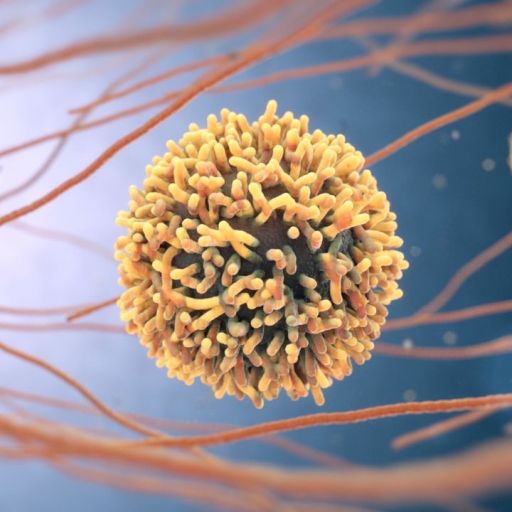What to do When Your Auto Insurance Claim is Denied?
What You Need to Know About Secured Credit Card Deposits!
Unveiling the Truth: Debunking Home Insurance Myths.
What do you Know About Credit Scores!
Insuring Your Peace of Mind: An Overview of Common Types of Insurance.
About Balance Transfer Basics!
Lymphoma is a form of cancer which affects lymphatic system. The lymphatic system is that part of the body which offers protection against pathogens and diseases. This disease occurs in the body when healthy cells in the lymphatic system grow out of control.
The lymphatic system consists of lymph nodes which are found throughout the body. Majority of lymph nodes are found in the abdomen, pelvis, groin, chest, underarms and neck. This system also consists of spleen, tonsils, thymus and bone marrow.
Lymphoma can affect all these areas, and even other organs of your body. In this article, we are going to discuss about the types of lymphoma, causes, symptoms and the risk factors associated with this disease. Let us begin:
Types of lymphoma
There are many types of lymphoma. Some of them are as follows:
●Cutaneous B-cell lymphoma
●Cutaneous T-cell lymphoma
●Waldenstrom macroglobulinemia
●Chronic lymphocytic leukemia
●Hodgkin lymphoma, also known as Hodgkin disease
●Non-Hodgkin’s lymphoma

Causes of lymphoma
The exact cause of lymphoma is not known. This disease begins with changes in the DNA of a disease fighting blood cell known as lymphocyte.
The DNA of the cells has all the instructions regarding the functions of a cell. In case of healthy cells, the DNA instructs the cell to grow and multiply at a fixed rate. These cells also die at a fixed time.
In case of cancer cells, changes in the DNA used to give different set of instructions. These changes instruct the cells to grow and multiply at a faster rate. The cancer cells continue to live even after the death of healthy cells.
In case of lymphoma, the DNA changes occur in the lymphocytes. The potential outcomes of these changes are as follows:
●Diseased lymphocytes can grow out of control
●It can result in the formation of too many diseased lymphocytes in the lymph nodes
●It can lead to swelling in the lymph nodes, spleen and liver.
Risk factors associated with lymphoma
Some of the risk factors of lymphoma are as follows:
●Family history: Family history is one of the major risk factors of lymphoma. Any individual having a sibling or relative suffering from lymphoma is at greater risk of getting this disease.
●A weakened immune system: If your immune system gets weakened by illness and medicines, then you are at getter risk of lymphoma. Individuals with a weak immune system usually take medicines to control the immune system.
This is usually common with patients after organ transplant. Some health conditions like HIV can also weaken the immune system and increase the risks of lymphocytes.
●Certain infections: Some infections also increase the risks of lymphoma. Examples of these types of infections are Helicobacter pylori, Epstein-Barr virus and HIV.
●Age: Age also plays a role in this case. Some types of lymphoma are common in teenagers and young adults whereas other types of this disease usually occur in individuals over the age of 55.

Common symptoms of lymphoma
Some of the common symptoms of lymphoma are:
Fever or chills
Fever can be considered as one of the symptoms of lymphoma. This mechanism can either be triggered by the body to fight infection or by lymphoma. If you have fever without any proper reason, it will be better if you consult a doctor so that they can examine you and determine the actual cause of fever.
Swollen lymph nodes
Swollen lymph nodes are another sign of lymphoma. Lymph nodes in the neck, armpits and groin may swell because of the presence of cancerous cells. The spleen may also become enlarged because of the same reason.
It can be felt as mass in the upper left abdomen. Nodes which swell due to infection are more painful compared to the nodes which swell due to lymphoma.
Sweating during nights
According to some experts, some individuals with lymphoma may have night sweats. This symptom indicates that people may have nighttime fever or any other issues which can control the body temperature.
Loss of appetite
Loss of appetite is another important symptom of lymphoma. Individuals suffering from this disease do not feel hungry. They experience various problems like nausea, vomiting or abdominal pain.
According to some experts, the main reason for this condition can be spleen. If this spleen gets enlarged with cancerous lymphocytes, it can cause discomfort by putting pressure on your stomach.

Chest pain and coughing
Chest pain and coughing can also be considered as symptoms of lymphocytes. In some cases, lymphomas can occur in the thymus gland. This gland is another part of the immune system. It is located in your chest.
When these gland or other lymph nodes in the chest become enlarged, they may put pressure on your trachea, which may cause problems like chest pain and coughing.
Itchy skin
Unusual itching in the body, particularly in the hands, legs and feet can occur due to lymphoma. Some individuals with lymphoma may develop visible rash on their skin. Constant itchiness is usually caused chemicals known as cytokines, which can affect the nerve endings in the skin.
Unintended weight loss
Losing weight is good for health, but if you start to lose weight suddenly without any changes in your diet or proper exercises, then it can be a cause of concern. This symptom should not be taken lightly as it can give indication about a deadly disease, such as lymphoma.
According to some researchers, this occurs because the cancers cells grow quickly compared to the normal cells and consume more energy compared to the normal cells.
Treatment of lymphoma
Some of the common treatment procedures for lymphoma are as follows:
●Chemotherapy: In this form of treatment, healthcare professionals will use various types of drugs for targeting and killing cancer cells
●Biologic treatment: This is a form of drug treatment which triggers the immune system to attack cancer. This is done by introducing living microorganisms inside body.
●Radiation therapy: This form of treatment uses concentrated doses of radiation for destroying cancerous cells
●Steroids: Steroids may be injected inside the body for treating lymphoma
Lymphoma is a deadly disease so it should not be treated lightly. One should look for all the possible symptoms and consult a doctor without wasting any time. Early detection and treatment can be helpful in saving lives.